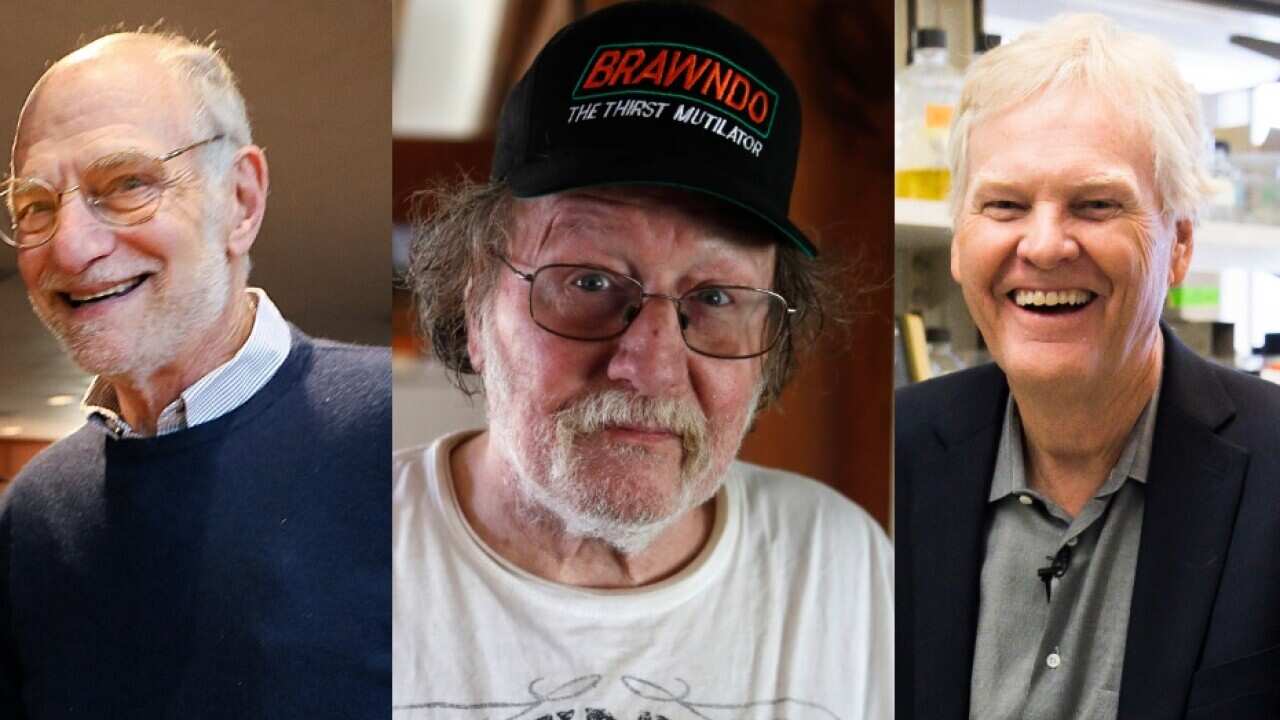Scientists Jacques Dubochet, Joachim Frank and Richard Henderson have won the 2017 Nobel Prize for Chemistry for developing cryo-electron microscopy which simplifies and improves the imaging of biomolecules.
Cryo-electron microscopy has enabled scientists to fill in previously blank spaces in research, generating images of everything from proteins that cause antibiotic resistance, to the surface of the Zika virus.
"This method has moved biochemistry into a new era," the Royal Swedish Academy of Sciences, which awards Nobel prizes, said in a statement. The awarding brings a 9 million Swedish crown ($A1.4 million) prize.
"Researchers can now freeze biomolecules mid-movement and visualise processes they have never previously seen, which is decisive for both the basic understanding of life's chemistry and for the development of pharmaceuticals."
Scottish-born scientist Henderson used an electron microscope to generate a three-dimensional image of a protein at an atomic resolution, showing the potential of the technology.
His breakthrough was further developed by German-born scientist Frank while Dubochet of Switzerland used rapidly frozen water to preserve the natural shape of the biomolecules.
Chemistry is the third of this year's Nobel Prizes after the winners of the medicine and physics prizes were announced earlier this week.
The prizes are named after Alfred Nobel, the inventor of dynamite, and have been awarded since 1901 for achievements in science, literature and peace, in accordance with his will.
While the chemistry award has sometimes been overshadowed by the towering reputations of physics winners such as Albert Einstein, laureates include ground-breaking scientists such as radioactivity pioneers Ernest Rutherford and Marie Curie, though she also won the physics prize.
The award passed over one of the highest-profile fields of research, the so-called CRISPR-Cas9 gene editing technology that earlier this year allowed US scientists to alter genes in a human embryo to correct a disease-causing mutation.




